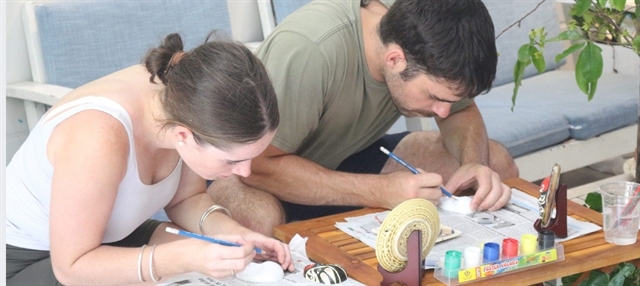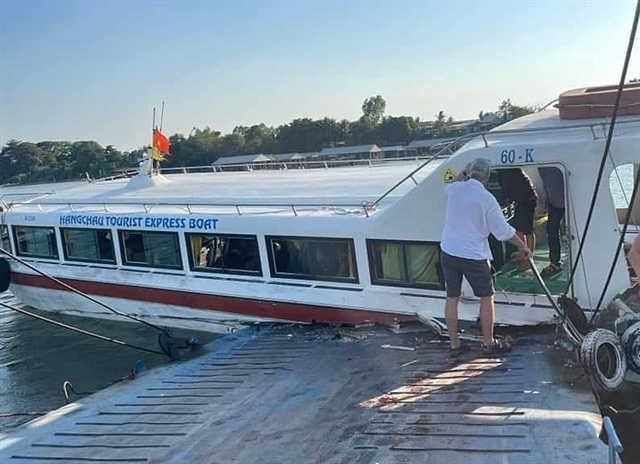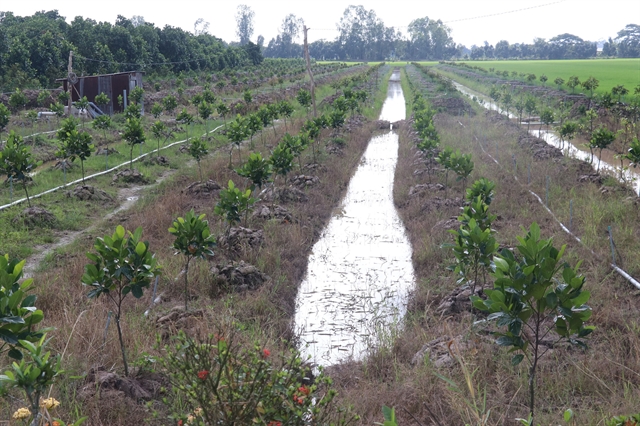 Society
Society
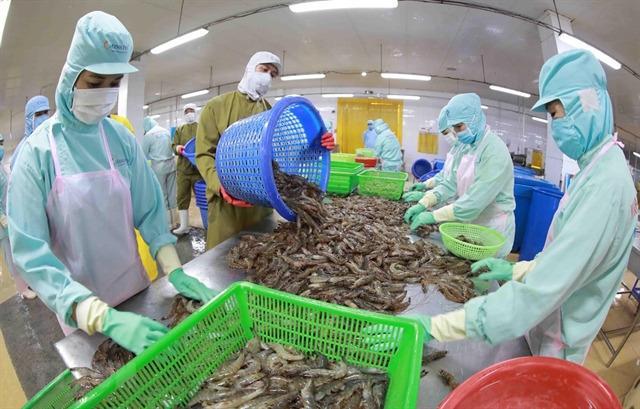
Seafood companies and traders in four central provinces affected by the Formosa toxic incident have asked management agencies to quickly take samples of massive frozen fish inventories for safety tests.
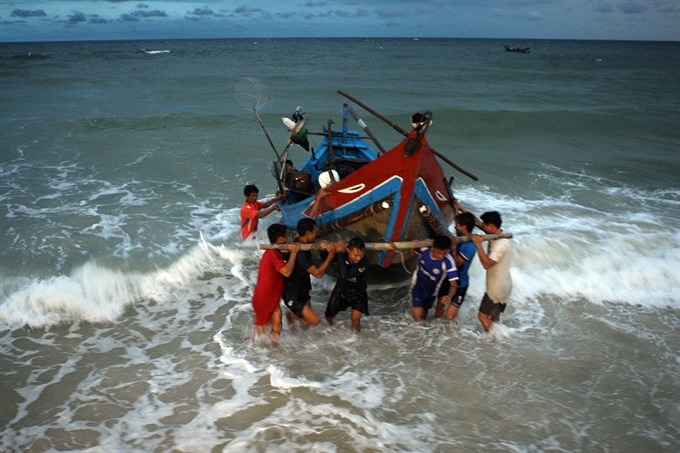 |
| Farmers pull their boat ashore after fishing at sea. Four central provinces affected by the Formosa toxic incident have asked for quick safety tests on frozen fish inventories. – VNA/VNS Photo Tuấn Anh |
QUẢNG BÌNH – Seafood companies and traders in four central provinces affected by the Formosa toxic incident have asked management agencies to quickly take samples of frozen fish inventories for safety tests, local newspapers report.
After the inspections, they hope the Government will help them sell the fish or destroy toxic fish to ease the burden on those whose frozen fish have remained unsold since the toxic discharges were found five months ago, leading to the fish deaths.
Figures from the Ministry of Agriculture and Rural Development showed that nearly 3,900 tonnes of frozen seafood are being stored in four provinces in Quảng Bình, Hà Tĩnh, Quảng Trị and Thừa Thiên-Huế, many of which where caught after the incident occurred.
Although the ministry in early May announced that seafood caught from the waters beyond 20 nautical miles from shore was safe, and seafood companies and traders have been given 20 per cent of financial support to collect and purchase fish, seafood companies and traders have found it difficult to sell the frozen fish.
In Quảng Bình Province, up to 2,000 tonnes of frozen fish being stored near the Gianh and Nhật Lệ rivers remains unsold.
Trương Thị Mười, deputy head of Duc Hieu Co,Ltd said that there were 640 tonnes of fish worth VNĐ30 billion (US$1.34 million) at her stores.
The fish were certified safe due to offshore fishing, but they remain unsold. Each month, her company pays VNĐ300 million ($13,440) for electric bills to keep them frozen.
Mười said the preservation cost was high, not including the monthly interest rate of bank loan. The company would no longer suffer the loss.
In Hà Tĩnh Province, the provincial People’s Committee has decided to support 30 per cent of financial costs for seafood companies and traders to encourage the consumption of seafood. A hotline was established to answer questions on seafood consumption.
However, the efforts have not been effective.
Trần Thị Tuyết, seafood trader at Lộc Hà District’s Thạch Kim Commune said that she got a bank loan to purchase nearly 30 tonnes of seafood and store them at Cửa Sót Port, but the fish remain unsold.
Worse, she could not sell another 90 tonnes of fish she purchased early this year. The quality of seafood has dropped after a long time in storage.
Tuyết said most felt insecure about the quality of seafood and did not dare buy it.
Last month, 20 traders at Thạch Kim and Thạch Bằng communes petitioned the ministry and agricultural sector about more than 1,280 tonnes of unsold seafood worth more than VNĐ74 billion ($3.31 million).
They claimed that they had not yet received support from authorised agencies, with some of seafood set to expired.
Lê Hồng Cơ, head of Lộc Hà District’s Economics and Facilities Department said that the department has paid 50 per cent of electric bills in April, May and June and the interest rate of bank loans for local companies and traders.
The department is working to support affected enterprises, he said.
Đặng Ngọc Sơn, deputy chairman of Hà Tĩnh Province’s People’s Committee said that consumers were worried about the safety of seafood as the exact time of the fish deaths remains unknown.
Hồ Sỹ Nguyên, director of Thừaa Thiên-Huế Province’s Department of Agriculture and Rural Development said that a team has been set up at Thuận An Port to supervise the transport of seafood to assure its safety.
Nguyễn Ngọc Oai, deputy head of the ministry’s Aquaculture Department said that the Government assigned ministries and sectors to take samples for tests. The Ministry of Health would take responsibility for testing samples and granting certificates for safe seafood. -- VNS



